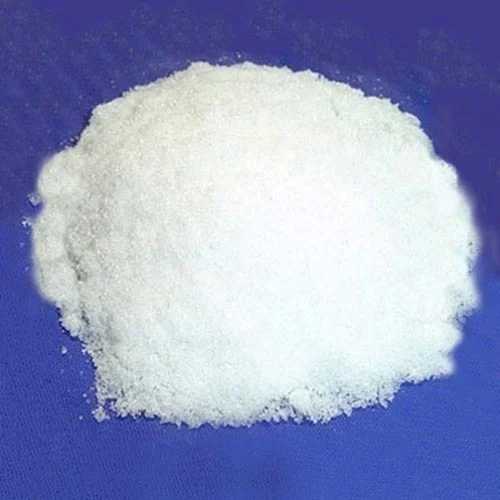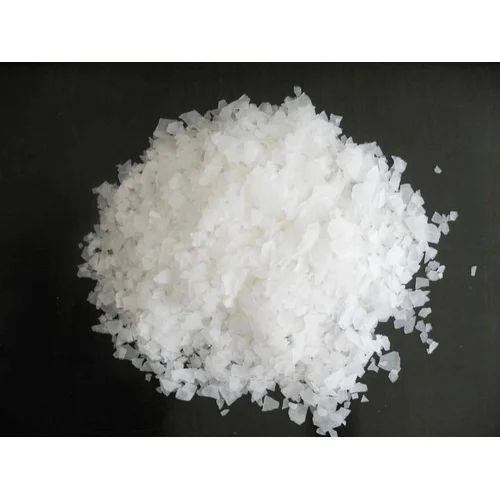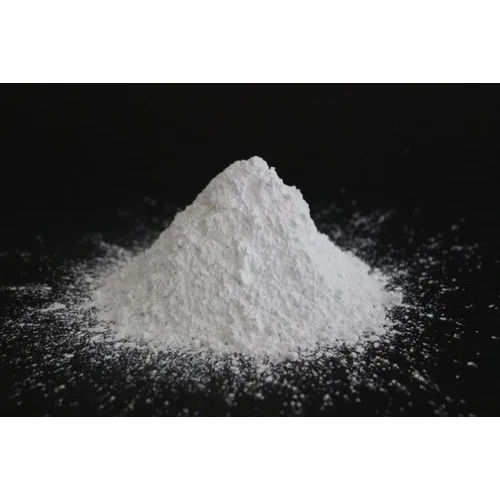
Ferric Alum
15 INR/Kilograms
Product Details:
- Molecular Formula NH4Fe(SO4)2
- Grade Industrial Grade
- Purity 99
- Appearance Powder
- Click to view more
X
Ferric Alum Price And Quantity
- 1000 Kilograms
- 15 INR/Kilograms
Ferric Alum Product Specifications
- 99
- Powder
- Industrial Grade
- NH4Fe(SO4)2
Ferric Alum Trade Information
- 7 Days
Product Description
Ferric alum, also known as iron(III) alum or iron alum, is a chemical compound with the formula Fe2(SO4)3 (H2O)2. It is an aluminum iron sulfate salt, typically encountered as the dodecahydrate form. Like other alums, it forms large, colorless to white crystals.
Ferric alum is used in various industrial and laboratory applications, including:
1. Water Treatment: It is used as a coagulant in water purification processes to remove impurities and suspended solids.
2. Paper Industry: Ferric alum is employed in papermaking as a sizing agent to enhance paper strength and improve retention of fillers and pigments.
3. Textile Industry: It is utilized in dyeing and printing textiles as a mordant, helping to fix dyes onto fibers.
4. Leather Tanning: Ferric alum is sometimes used in leather tanning processes as a pickling agent.
5. Cosmetics: In some cosmetic formulations, it is used as an astringent or styptic agent.
6. Food Industry: Although less common due to safety concerns, it was historically used as a food additive, primarily as a firming agent or acidity regulator.
Ferric Alum FAQ:
Q. What does Ferric Alum look like?
Ans: Ferric alum typically appears as large, colorless to white crystals. It is often encountered in its dodecahydrate form, which means it contains 12 molecules of water per molecule of the compound.
Q. What are the uses of Ferric Alum?
Ans: Ferric alum has various industrial and laboratory applications. It is commonly used as a coagulant in water treatment, sizing agent in papermaking, mordant in textile dyeing, pickling agent in leather tanning, and in cosmetic formulations.
Q. Is Ferric Alum safe to use?
Ans: While Ferric Alum has many industrial applications, it's important to handle it with care as it can be corrosive and irritating to the skin and eyes. Safety precautions should be followed during handling and use, and appropriate protective gear should be worn.
Q. Can Ferric Alum be used in food?
Ans: Ferric alum was historically used as a food additive, primarily as a firming agent or acidity regulator. However, its use in food has decreased due to safety concerns, and it is not commonly used in food products today.
Q. How should Ferric Alum be stored?
Ans: Ferric alum should be stored in a cool, dry place away from moisture and incompatible substances. It should be kept in tightly sealed containers to prevent contamination and degradation.
Q. What are the alternatives to Ferric Alum?
Ans: Depending on the specific application, alternatives to Ferric Alum may include other coagulants for water treatment, sizing agents for papermaking, mordants for textile dyeing, or pickling agents for leather tanning. The choice of alternative will depend on factors such as cost, effectiveness, and safety considerations.
Tell us about your requirement

Price:
Quantity
Select Unit
- 50
- 100
- 200
- 250
- 500
- 1000+
Additional detail
Mobile number
Email






 Call Me Free
Call Me Free
